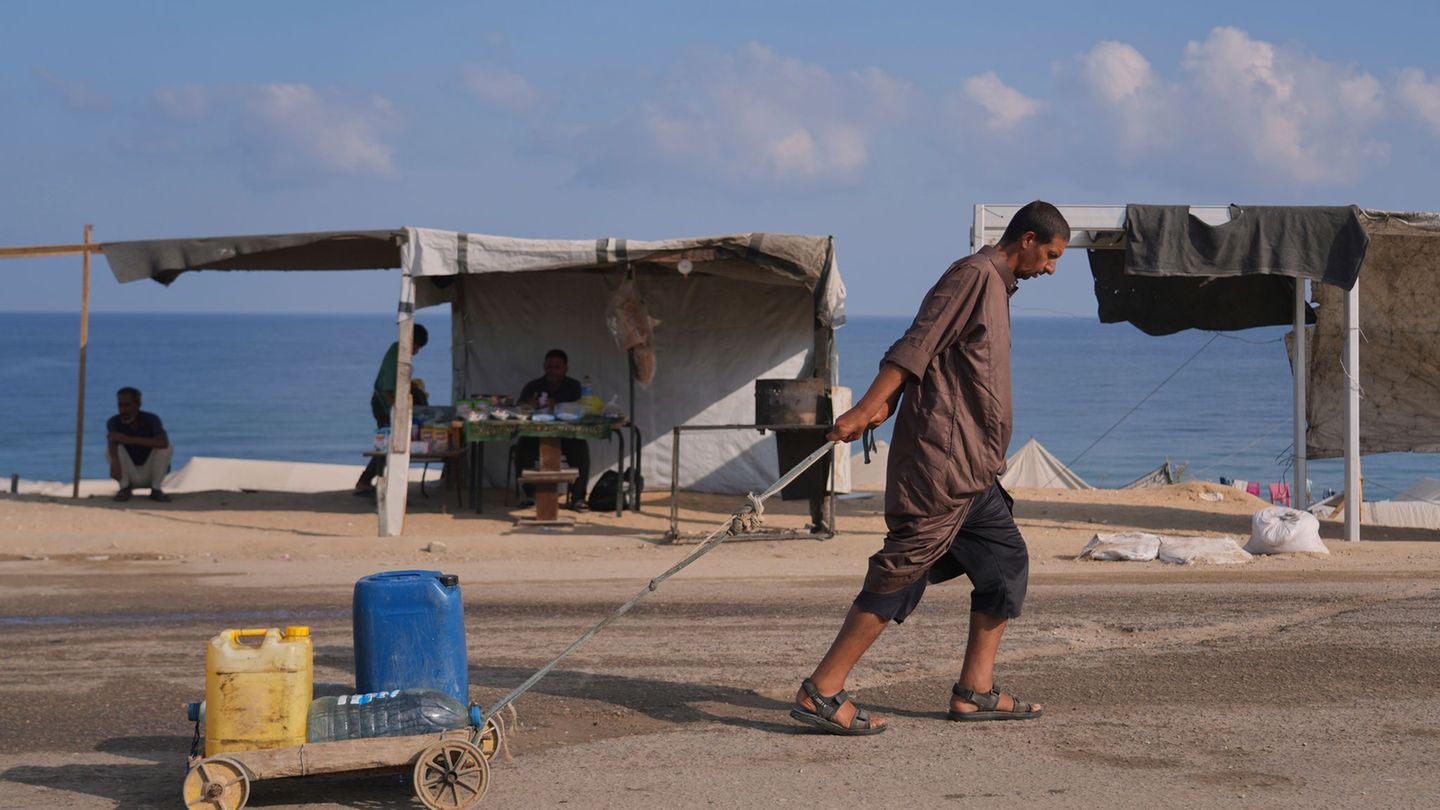Last year I wrote why the price index does not reflect the cost of living. For conventional economics and politics, mainstream thought and the media, the evaluation of the improvement of society is reduced to the level of inflation and GDP growth.
The question is, is GDP growth enough to be better? Who are better? No There are doubts that sustainable growth is positive, but this alone does not automatically imply an improvement in well-being.
So for decades GDP per capita was taken as a “table of positions of the countries.” Variable that arises from taking the value of the total product of a country divided by its total population. According to this indicator in 2022 Luxembourg is the richest country in the world. But Switzerland and Norway in 5th and 6th place are behind countries like Singapore and Qatar.
GDP per capita is an indicator that has several problems. It is an average that does not take into account the distribution of wealth, it reflects only the value of monetary income in dollars and not access to other types of benefits (e.g. free or subsidized services). The necessary income if you have adequate education, health and public security is not the same as if you have to pay to enjoy these rights.
Make comparisons in current dollars Nor does it allow us to evaluate whether the income (product counterpart) is enough to cover the cost of living..
That is why it is important to consider GDP corrected by purchasing power parity (PPP) to compare the effective access to consumption of goods and services at a global level.
In Argentina, an appreciation of the exchange rate currently implies a higher GDP per capita in dollars. Now does that mean that we are better off? ¿How is this well-being distributed?? Is that position sustainable when the exchange rate corrects and reduces the value of GDP?
An example: Although in 2024 the salaries of registered workers increased in dollars due to the exchange rate appreciation by 31.7%and minimum pensions by 18.2%, the cost of goods and services rose much more in dollars (43.7%) than said income.
Outside of traditional statistics, there is a very popular indicator: the “Big Mac index” prepared by “The Economist” magazine, which reflects the cost of said hamburger in various countries, with Argentina being among the most expensive in the world. In September, Argentina ranked fourth in terms of shortages only surpassed by Switzerland, Norway and Uruguay, with salaries well below first world countries.
This is not an isolated example.the high cost of products in Argentina is very evident if compared internationally due to a set of factors. (exchange appreciation, taxes, high uncertainty, high profit margins in certain sectors, monopolistic practices and little competition, lack of production scale, technological setback, expensive and insufficient credit, etc.). Shopping tourism in neighboring countries and the growth of electronic commerce in imported consumption reflect this reality.
To look for an alternative to GDP as an indicator of “happiness”, The United Nations developed the Human Development Index (HDI) in 1990. which is an indicator that, in addition to GDP, considers two other variables: life expectancy and years of schooling. If the human development index is considered, 12 of the first
15 countries correspond to Europe and the other three are from Asia and Oceania. Canada just appears in 18th place and the United States in 20th.
Argentina is the second country in Latin America and is considered a country of high human development. But as we pointed out, GDP is an average and inequality is not measured, although the HDI is more comprehensive with two non-monetary variables.
But the dynamics of the HDI mark a setback. Argentina had an average annual growth of the HDI between 1990-2022 of 0.50% and it was not only below global growth (0.65%) but also that of Latin America (0.57%).
To see the distribution of growth, the United Nations later created the human development index corrected for inequality. If this indicator is taken, Argentina loses several positions.
If we take into account not only the inequality gap and the human development index with a gender perspective, No substantial differences were observed in the country’s ranking in 2022.
But if a more recent indicator is taken into account the gender inequality index that take into account three fundamental factors: first, health issues that have to do with premature pregnancy and mortality, the economic empowerment of women including access to management positions and the degree of activity and participation of women in the economy of a country, the results are different and Argentina’s position worsens.
So If the GDP per capita is taken, Argentina is in 63rd place worldwide, it improves to 48th place in the human development index. (taking the latest available data for 2022 from the 2023-2024 report). The country is 43rd if the HDI is corrected for inequality and falls to 71st place if the gender inequality index is considered.
Clearly there is much to do to close these gaps, both the inequality in the distribution of wealth and the gender gap. It must be taken into account that these are data from 2022 (the latest available).
What happened in 2023 and 2024, including both the macro policies carried out and the strong setback in public policies that influence life expectancy, access to health, education, redistributive factors, especially on vulnerable sectors, they herald an absolute and relative worsening of well-being and human development.
Although the HDI and its derivatives are higher than GDP per capita, better indicators continue to be sought. For example, the construction of “happiness indices”. One of the first was commissioned by the king of Bhutan to various economists from around the world to carry out in his kingdom.
“Happiness” that does not only imply access to consumer goods, but also includes comprehensive issues that make up well-being, so diverse that they include everything from freedom in decision-making and social consensus to the “mental health” of the population. Taking back the eu daimon Aristotelian.
There are different indices of happiness. Finland tops the global ranking despite being in 20th place in the GDP per capita ranking.
Different cultures value issues related to quality of life, including leisure time, institutional quality, and the degree of citizen participation in public affairs.
In Latin America, collecting the tradition of the native peoples, the Andean concept of “good living” has been updated, which includes both individual and collective issues. What it means to be part of a community, to have free time to share with your loved ones and find yourself, decent housing, and living safely. and within a framework of a community that generates bonds of solidarity, in addition to caring for nature and the environment in which we live. A paradigm different from consumerism and individualism that does not necessarily generate happiness or well-being.
To evaluate if we are better off as a society we must not only look at the statistics national, GDP averages, but a set of qualitative variables that include not only the individual sphere, but also the social, the collective.
It is not enough to have a good income if there is no good physical infrastructure and services, if there is violence and marginality. It is not just an issue of individual sensitivity, we are talking about economic rationality. History shows that economic and social deterioration affects society as a whole in the future.
That’s why there is two central dimensionsTo determine our well-being one is the sphere of production and work. The other is the efficient and fair distribution of individual and collective goods and services.
What is at risk is not only employment and wages but a series of fundamental rights, the defense of which in many cases we talk about. Rights enshrined in the Constitution and in the laws will depend on the “cultural battle”. Battle that will be resolved in the degree of awareness of recovering a collective sense and the value of the public, beyond correcting its malformations, corruption and insufficiencies.
These are not blenders or chainsaws; These are surgical corrections, precise, fair and about building not destroying. It is about having good indicators and policies for growth with equity.
Individualism as a supreme value only allows a few to “live well.” Most people depend on there being institutions and a State that ensure that civil, social and economic rights are respected. A social contract of democratic coexistence with social justice and not the law of the jungle. Rules that prevent the most ferocious and powerful from eating the rest.
Source: Ambito
I am Pierce Boyd, a driven and ambitious professional working in the news industry. I have been writing for 24 Hours Worlds for over five years, specializing in sports section coverage. During my tenure at the publication, I have built an impressive portfolio of articles that has earned me a reputation as an experienced journalist and content creator.




